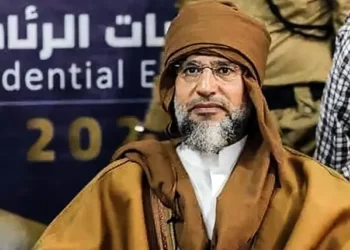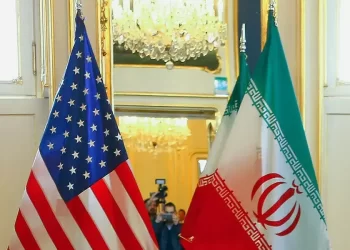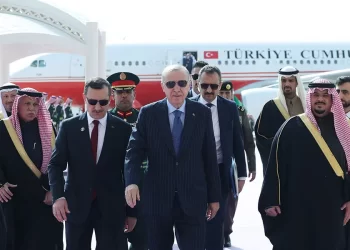VILLEPINTE, France (news agencies) — Nearly 17 months ago in New Delhi, Algerian boxer Imane Khelif was disqualified from the International Boxing Association’s world championships three days after she won an early-round bout with Azalia Amineva, a previously unbeaten Russian prospect.
The disqualification meant Amineva’s official record was perfect again.
The IBA said Khelif and fellow boxer Lin Yu-ting of Taiwan had failed “to meet the required necessary eligibility criteria and were found to have competitive advantages over other female competitors.” The governing body claimed the fighters had failed unspecified eligibility tests — the same tests that ignited a massive controversy about gender regulations and perceptions in sports this week as Khelif and Lin compete at the Paris Olympics.
The IBA’s decision last year — and its curious timing, particularly related to Amineva’s loss to Khelif — would have raised warning signs around the sports world if more people cared about amateur boxing, or even knew more about the IBA under president Umar Kremlev of Russia.
The entire boxing world has already learned to expect almost anything from the Russian-dominated governing body that was given the unprecedented punishment of being permanently banned from the Olympics last year. In fact, it hasn’t run an Olympic boxing tournament since the Rio de Janeiro Games in 2016.
The non-boxing world largely doesn’t know, however, about the IBA’s decades of troubled governance and longstanding accusations of a thorough lack of normal transparency in nearly every aspect of its dealings, particularly in recent years. Many people took the IBA’s proclamations about Khelif and Lin at face value while dragging the eligibility dispute into wider clashes about gender identity.
The International Olympic Committee has decades of mostly bad history with the beleaguered governing body previously known for decades as AIBA, and it has exasperatedly begged non-boxing people to pay attention to the sole source of the allegations against Khelif and Lin.
“These two athletes were the victims of a sudden and arbitrary decision by the IBA,” IOC spokesman Mark Adams said this week. “Such an approach is contrary to good governance.”
On Saturday, IOC President Thomas Bach said it was “totally unacceptable” the two boxers have faced what he called hate speech in a “politically motivated” uproar.
The IOC had stuck with the previous incarnation of boxing’s governing body through decades of judging scandals, bizarre leadership decisions and innumerable financial misdeeds while it presided over Olympic boxing tournaments.









